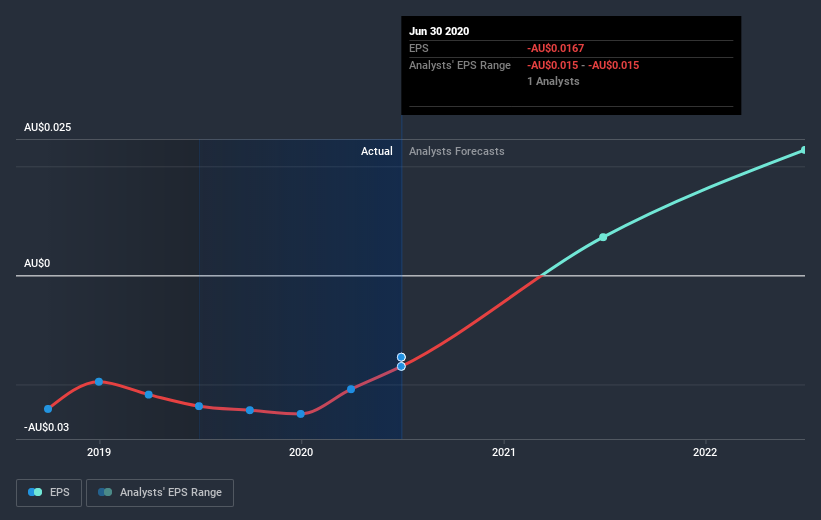We Might See A Profit From Armour Energy Limited (ASX:AJQ) Soon

We feel now is a pretty good time to analyse Armour Energy Limited's (ASX:AJQ) business as it appears the company may be on the cusp of a considerable accomplishment. Armour Energy Limited, together with its subsidiaries, focuses on the discovery, development, and production of natural gas and associated liquid resources in Australia. The AU$46m market-cap company announced a latest loss of AU$9.6m on 30 June 2020 for its most recent financial year result. As path to profitability is the topic on Armour Energy's investors mind, we've decided to gauge market sentiment. We've put together a brief outline of industry analyst expectations for the company, its year of breakeven and its implied growth rate.
View our latest analysis for Armour Energy
Expectations from some of the Australian Oil and Gas analysts is that Armour Energy is on the verge of breakeven. They anticipate the company to incur a final loss in 2020, before generating positive profits of AU$6.0m in 2021. So, the company is predicted to breakeven approximately a year from now or less! We calculated the rate at which the company must grow to meet the consensus forecasts predicting breakeven within 12 months. It turns out an average annual growth rate of 126% is expected, which is rather optimistic! Should the business grow at a slower rate, it will become profitable at a later date than expected.
Given this is a high-level overview, we won’t go into details of Armour Energy's upcoming projects, though, take into account that by and large an energy business has lumpy cash flows which are contingent on the natural resource and stage at which the company is operating. This means that a high growth rate is not unusual, especially if the company is currently in an investment period.
Before we wrap up, there’s one issue worth mentioning. Armour Energy currently has a debt-to-equity ratio of 130%. Generally, the rule of thumb is debt shouldn’t exceed 40% of your equity, and the company has considerably exceeded this. A higher level of debt requires more stringent capital management which increases the risk in investing in the loss-making company.
Next Steps:
There are too many aspects of Armour Energy to cover in one brief article, but the key fundamentals for the company can all be found in one place – Armour Energy's company page on Simply Wall St. We've also put together a list of important factors you should look at:
Historical Track Record: What has Armour Energy's performance been like over the past? Go into more detail in the past track record analysis and take a look at the free visual representations of our analysis for more clarity.
Management Team: An experienced management team on the helm increases our confidence in the business – take a look at who sits on Armour Energy's board and the CEO’s background.
Other High-Performing Stocks: Are there other stocks that provide better prospects with proven track records? Explore our free list of these great stocks here.
This article by Simply Wall St is general in nature. It does not constitute a recommendation to buy or sell any stock, and does not take account of your objectives, or your financial situation. We aim to bring you long-term focused analysis driven by fundamental data. Note that our analysis may not factor in the latest price-sensitive company announcements or qualitative material. Simply Wall St has no position in any stocks mentioned.
Have feedback on this article? Concerned about the content? Get in touch with us directly. Alternatively, email editorial-team@simplywallst.com.

 Yahoo Finance
Yahoo Finance 
